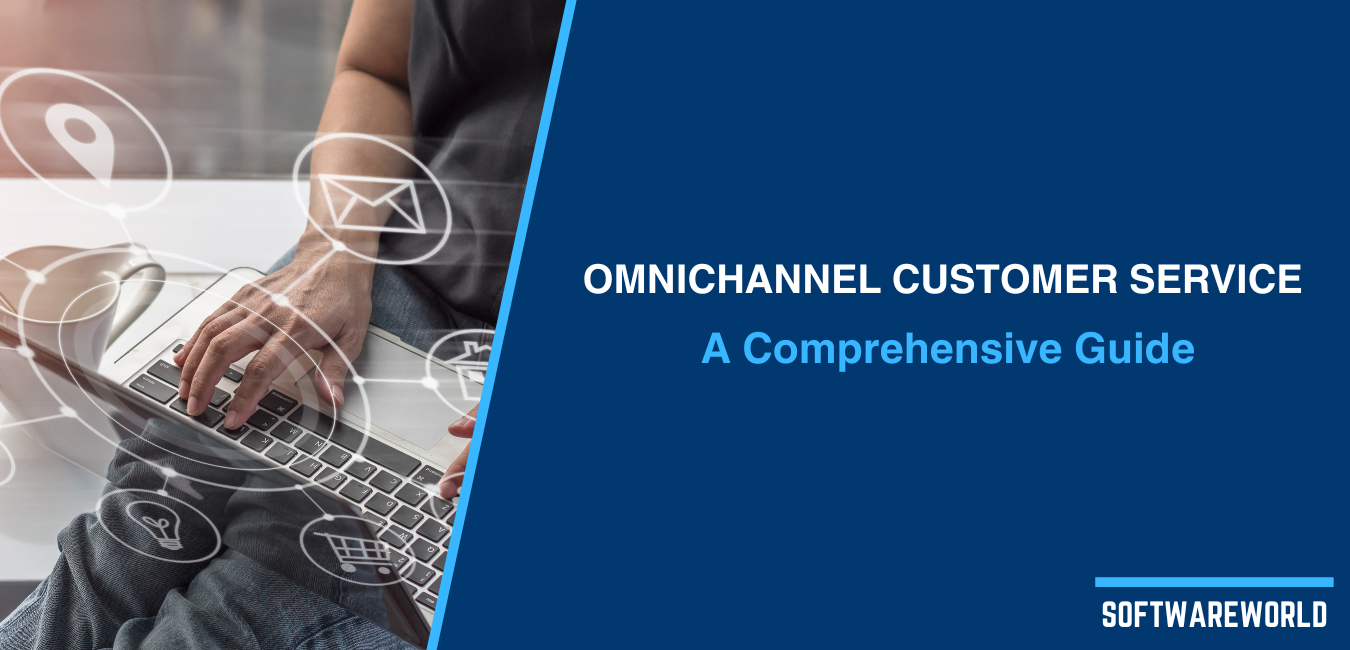Table of Contents
In This Article
» What is App Development Software?
» Which Type of App Development Software You Should Consider?
› List of Common Features to Find in App Development Software
» Benefits of Using App Development Software
» How Demand for App Development Software is Growing?
» Summary
The right software for developing an application can be difficult to navigate, especially when you are creating an app for the first time. Since the mobile app market has been growing at a fast pace, it is utmost important to develop a highly-functional app. This post will highlight the best software solutions that allow you to stand out from the crowd in the marketplace.
Due to the increasing usage of mobile phones, more and more enterprises are adopting mobile technologies to beat their rivals and win the hearts of as many users as possible. Today, you can count on plenty of mobile app development tools based on pricing, complexity, functionality, and so on. Even when the application is built, marketing is the key to increase app downloads and reach a wider audience.
It is crucial to gain a clear understanding of what app development software is, which kind of software you to choose, what are the common features to look for, and how they can help to save time and effort when developing an application. This guide will give you a detailed knowledge of the best software solutions and which ones are effective for your app and business goals.
Let’s dive in!
» What is App Development Software?
Mobile app development software is a set of tools and techniques that allow developers to streamline the process of app development. There is a number of software that gives code-free developments, templates, IDE (Integrated Development Environment), web analytics, API (Application Programming Interface), and other features to build high-quality mobile apps.
Such software collects multiple elements, programming languages, bug tracking tools, databases, and interfaces into a single place to easily develop apps for mobile devices as well as desktops. While tech-savvy use such methods for web and native apps, they also assist non-tech savvy people to incorporate exciting features for small businesses, personal and recreational purposes.
Some people may not be aware of coding and programming practices, in these cases, they can use no-code app development platforms to easily develop the application irrespective of their skills and background.
» Which Type of App Development Software You Should Consider?
1. Software Framework
A software framework is a platform that dictates the control flow and varies between libraries and user applications. This does not allow users to change the framework, but they can take precedence over potential parts of its code and add extensions to it. Some popular software frameworks include the Oracle Application Development Framework, the .NET Framework, and Cocoa Umbrella framework. Developers can keep these factors in mind when picking a framework to use and should also evaluate the compatibility for programming languages with it.
2. Integrated Development Software (IDE)
IDE offers developers all the necessary tools that they require to develop apps using a certain framework. Most integrated development software includes automation tools, a text editor, and debugger. Xcode incorporated with the Cocoa and Cocoa Touch framework empowers developers to build friendly apps for mobile, desktop, and even Internet of Things (IoT) devices.
3. No-Code Application Development Platforms
Since small business owners are willing to drive sales through mobile apps these days, no-code application development platforms are gaining huge popularity. These tools give Graphical User Interfaces (GUIs) for creating desktop, mobile and web-based apps, reducing or eliminating the need for source code editing. Some popular no-code application development platforms are Appy Pie and AppSheet.
» List of Common Features to Find in App Development Software Solutions
1. Source Code Editors
Source code editors are a suite of text editor applications where you can write and edit the plain text without any hassle. You can encounter these in IDEs and also get these as standalone tools.
2. Templated Apps
Most no-code solutions give app templates for designing the app and boost its functionality. These are precisely built for different business niches and hold functionalities to support those business models.
3. Agile Workflows
Agile workflows have managed to make their path into software solutions, particularly in project management tools. It is advisable to acquire mobile application development services to understand its methodologies, keep everything organized and make the features worthy enough.
4. Graphical User Interfaces
Graphical user interface tools eradicate the need for writing source code that sets up the position and sequence of page components. It uses visual editors where you can drag and drop needed elements and widgets to create the layout of the application. You can find a feature of GUI builder in platforms like IDEs and no-code, or even standalone tools.
» Benefits of Using App Development Software
1. Enhanced Visibility
Despite investing many hours in writing source code to run your application, tools like no-code platforms and IDEs help to see visual changes in real-time. This can also empower developers to determine the possible issues at an initial stage, which results in a more positive environment.
2. Less Time Consuming
Tools like software frameworks, IDEs, and no-code platforms allow developers to get rid of the lengthy process when they start building a new app every time. These help them to concentrate on refining workflows and processes instead of working on the same source code every single time.
3. User Interface Design Tools can be Helpful
User Interface (UI) design tools help developers to add a relevant look and feel across various devices. They can also use various view variations such as portrait and landscape orientations. Many IDEs have its own set of user interface tools, which you can utilize to preview design when testing usability.
» How Demand for App Development Software is Growing?
From small to large-scale businesses, everyone has started building mobile applications to impose advanced technology and enhance user experience. Some technologies like Artificial Intelligence (IoT), machine learning, virtual and augmented reality has transformed the mobile application development market to a great extent.
1. Increased Usage of Mobile Applications
The introduction of no-code application development platforms has empowered many enterprises to develop applications even when they don’t carry technical background and vast knowledge of using such tools.
2. Internet of Things (IoT) Encouraging More Users to Connect
The advancement in the Internet of Things (IoT) and wearable technology have opened various doors for both developers and users to increase connectivity. In the coming years, companies like Amazon, Google, Apple, and Facebook will allow developers to build applications for their respective devices.
3. Artificial Intelligence and Machine Learning are Providing Optimum Support
Artificial Intelligence (AI) and Machine Learning enable developers to add advanced features within their applications, for both mobile devices and desktop. Frameworks like Oracle’s Java and .NET support various programming languages to develop AI and frameworks for mobile app development in India and other locations.
4. PaaS Tools Are Reducing App Development Time
Platform as a service (PaaS) is not a new invention but has been enjoying immense success in the field of cloud computing technology. It makes the app’s infrastructure like operating system, databases, visualization, and servers easy to set up and manage. Some tools can automate the process so that developers can focus on their core objectives and tasks, eventually leading to quicker deployment.
Today, the internet and technologies allow buyers as well as sellers to connect even in such an overcrowded marketplace with ease. Searching for the relevant technology stack and app development software based on your needs and goals will definitely take you to the new heights of success.
» Summary
To make your mobile application development process more easy and successful, choosing the right technology stack and app development software is extremely vital. You can use no-code, IDEs and other platforms to lower down your app development cost, time and efforts. It makes your desktop, mobile, and web-based apps more scalable, manageable and dedicated to business needs.



